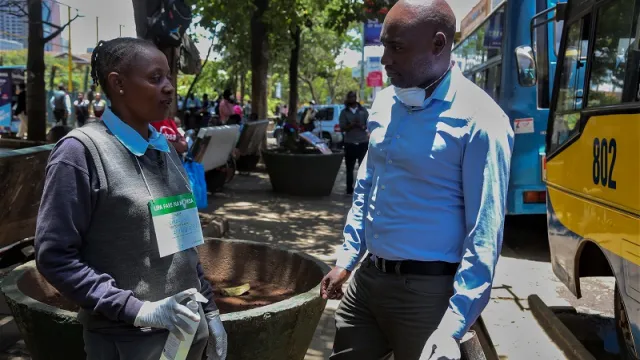Coronavirus could be setting us up for a cashless society

Coronavirus could be setting us up for a cashless society
As the government battles to contain the spread of the novel Coronavirus, the switch to mobile money has helped slow down the spread of the virus in a big way.
Money changes hands very first in Kenya as it does in any other economy, something referred to as the velocity of money.
Although WHO has not pronounced itself on the transmission of the virus through cash, physical currency is known to carry germs.
Previous studies have suggested that it can harbor bacteria and viruses, aside from contributing to the spread of diseases.
Read also:
- Most corporations will struggle in the wake of COVID-19, some more than others
- GSMA certification, what this means for Kenya
Other countries like China have taken to disinfecting cash from banks before issue while the US increased the minimum holding period for bills coming from Asia and Europe to the US from five days to 10 days.
Kenya, an early adopter of mobile money, was too at an advantage. The decision by President Uhuru Kenyatta to encourage cashless transactions by partnering with telcos like Safaricom to remove transfer charges for transactions less than Sh1000 will go a long way to help curb the spread.
Studies have shown that when M-PESA was introduced in 2007, it helped increase the velocity of money, the rate at which money changes hands, and in effect, has oiled the economy and grown the GDP.
A small amount of electronic money, by circulating frequently, provides the same transaction (and transfer) value as a much larger quantity of cash.
Hence, what Kenya has been able to do is to increase circulation but keep it less in cash, otherwise, everyone would end up touching an infected note or coin.
The shift to cashless has received widespread adoption, from matatu fares to boda-boda, taxis as well as online delivery, and now National Social Security Fund (NSSF), which will collect payments for its tenant purchase schemes via M-Pesa.
For a long time, central banks across the globe have been debating on the idea of going all digital and the effect it would have on economies.
Sweden, the first country to adopt banknotes in Europe in 1661, is set to introduce its own digital currency in 2021 and plans on becoming the first world's cashless society by 2023.
For Kenya, cash economy and digital currencies like M-Pesa have operated on parallel terms; switched for convenience and safety and accepted everywhere as a valid exchange.
While the immediate objective is to reduce the risk of transmission of COVID -19 by going cashless, it is bound to change our behavior, which may mean that cash will be less preferred going forward.
The Central Bank of Kenya has also doubled daily mobile transactions to Sh150,000 and mobile wallets to Sh300,000 in response to the Coronavirus outbreak. This will be a major game-changer going into the future.



